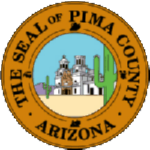Pima Supervisors Vote to Force Court Ruling on Property Tax Law Change for TUSD
 PIMA COUNTY — The state Legislature this year, in the waning hours of a budget negotiation dominated by the issue of raises for public-school teachers, passed a provision that purported to re-brand a tax imposed by school districts under court-ordered desegregation orders as a secondary, rather than primary, property tax. The move may have been intended to help the state avoid having to pay part of a school district’s primary property tax as part of Additional State Aid for Education. A change to the state Constitution approved by voters in 1980 restricts the amount of primary property tax a homeowner must pay to 1 percent of the home’s full cash value. When a home’s primary property taxes exceed 1 percent, the state makes up the difference and pays it to school districts to hold them harmless from the 1 percent cap.
PIMA COUNTY — The state Legislature this year, in the waning hours of a budget negotiation dominated by the issue of raises for public-school teachers, passed a provision that purported to re-brand a tax imposed by school districts under court-ordered desegregation orders as a secondary, rather than primary, property tax. The move may have been intended to help the state avoid having to pay part of a school district’s primary property tax as part of Additional State Aid for Education. A change to the state Constitution approved by voters in 1980 restricts the amount of primary property tax a homeowner must pay to 1 percent of the home’s full cash value. When a home’s primary property taxes exceed 1 percent, the state makes up the difference and pays it to school districts to hold them harmless from the 1 percent cap.
The Legislature’s change has put Pima County and Tucson Unified School District in a legal bind. The Board of Supervisors, June 12, voted unanimously to calculate TUSD’s desegregation tax amount as part of the 1 percent primary property tax cap calculation. If the state disagrees with Pima County’s action and refuses to provide the Additional State Aid for Education, it potentially creates a $17 million shortfall in TUSD’s budget. The Board’s action will likely prompt TUSD to seek a declaratory judgment against the county and the state asking a state court to either order the county to levy the tax or order the state to pay Additional State Aid for Education in accordance with the intent and spirit of the 1980 state constitutional change.
The County Attorney’s Office, in a May 22 memorandum, told the board the state’s change to the statutes likely does not change the calculation of the 1 percent primary property tax cap calculation, and that if it did so, it would likely be unconstitutional. The County Attorney’s Office also warned that taxpayers in TUSD who see an increase in their property taxes that exceed the 1 percent cap may sue the county if the county levies the tax as intended by the Legislature.
The board had voted in May to seek an opinion on the matter from the Arizona Attorney General, which, in this instance, would require a request from a state officer. So far, no member of the state Legislature has volunteered to seek legal guidance from the Attorney General.
An immediate solution is needed. TUSD this month must pass its budget for next fiscal year, which starts July 1, and the Board of Supervisors is scheduled to levy the property taxes for all taxing jurisdictions in the county, including TUSD, at its Aug. 20 meeting. That date for levying property taxes is mandated by state law.
In a memorandum to Supervisors, County Administrator Chuck Huckelberry wrote, “Inviting a legal action is an unusual step. But in this case, without some assurances from the state regarding their interpretation of (Senate Bill) 1529’s impact, some sort of legal action seems almost inevitable. Allowing it to be initiated sooner rather than later will hopefully lessen the period of uncertainty for taxpayers, the county and TUSD.”